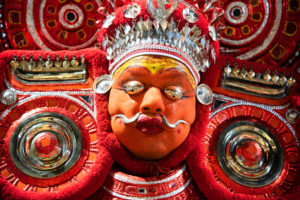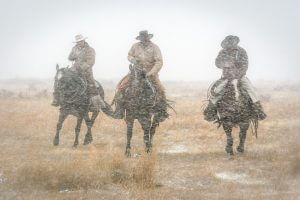READER SELECTION
This Intrepid Interlude was hand-picked by the badass members of The Alliance.
Want to vote on upcoming pitches?
The frigid air blasted across my face. Beyond, icy tundra stretched to the horizon, sheets of white faded in and out, blending with the grayish hue of the sky. An icy world, unforgiving and unwelcoming.
I cracked open my eyes. I wasn’t in Antarctica. In fact, I wasn’t anywhere near the poles.
I was back in Thailand, standing in front of the air-conditioning unit, envisioning I was elsewhere.
~~
As a kid growing up in the tropics, I suffered from an unusual malady. Confined to the concrete jungle of Bangkok, I’d caught a boreal itch — an inexplicable draw toward the poles. The ice seemed cooler on the other side of the world, the vast emptiness of the Arctic and Antarctic more compelling than a city of overstimulation where I couldn’t turn my mind off.
“In the cold, I find I can think straight; the air feels clean and uncluttered,” writes Katherine May in her aptly titled book Wintering. “I’m certain that the cold has healing powers that I don’t yet come close to understanding. After all, you apply ice to a joint after an awkward fall. Why not do the same to a life?”
Her words on the notion of wintering — of a time for reflection and recuperation, for slowing down, for letting time expand — deeply resonated, especially as the years passed and life seemed to accelerate into a blur.
But the magnetism surrounding winter wasn’t simply about slowing down. The cold also represented the antithesis to what I knew. It was a symbol of true adventure, of the unknown.
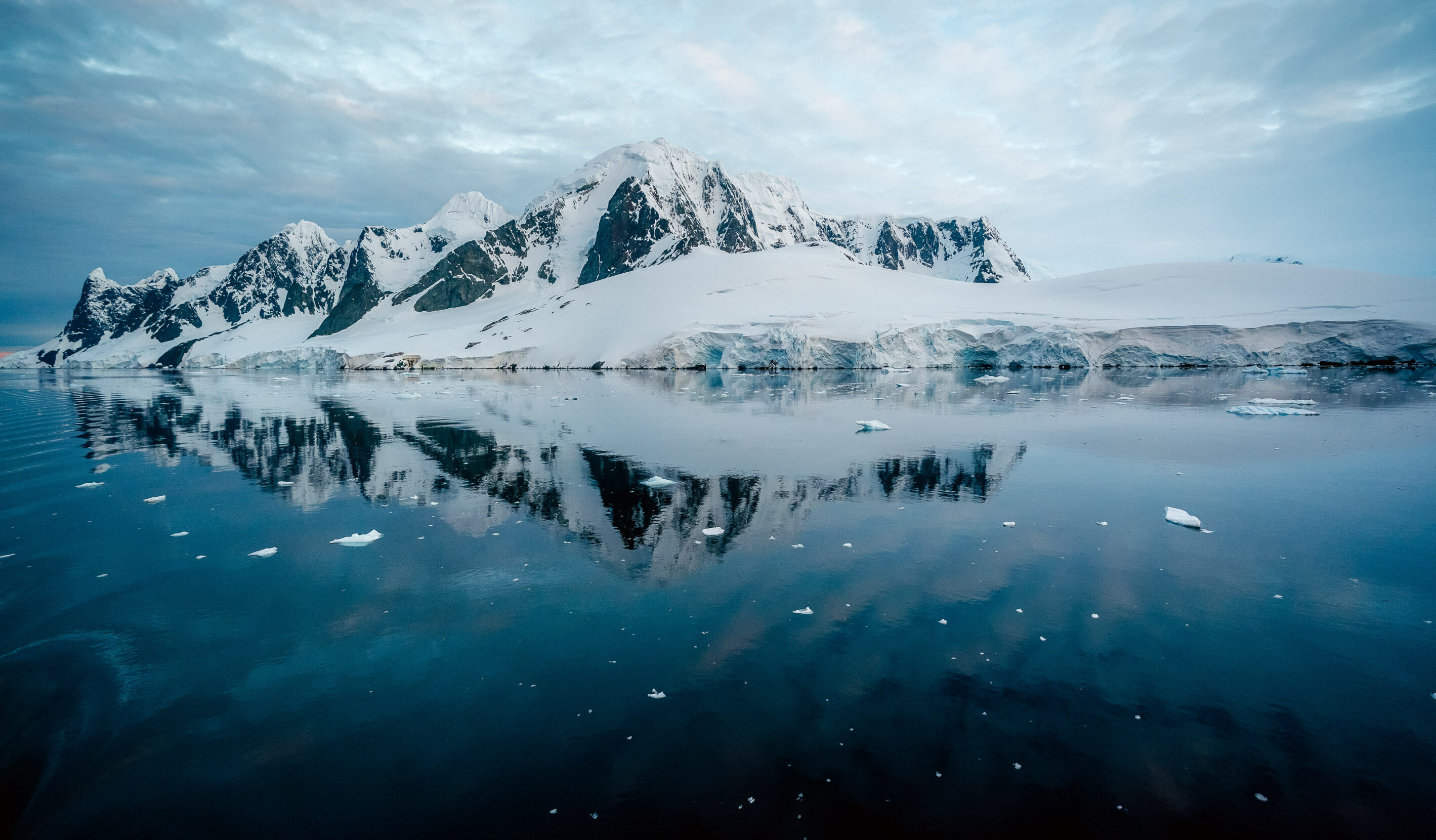
Is the concept of “wintering” at odds with Antarctica as a symbol of adventure? Photo: Pier Nirandara.
Years spent chasing that feeling eventually culminated in a place so distant, it seemed to embody the very notion of cold. “Nothing could conquer in me the restless itch to rove,” I wrote on my first trip to Antarctica, paraphrasing a line from Dante’s Inferno.
Close to a decade later, the obsession reared its head once more. This time, it wasn’t enough to explore the continent on land. I wanted to plunge into its depths, through its blood, to its core. To feel the piercing cold against my skin, to shock myself into the sensation of being alive.
Serendipity connected me to a polar company who wanted to set up an underwater expedition. A few months later, I found myself on a ship sailing south, Antarctica bound.
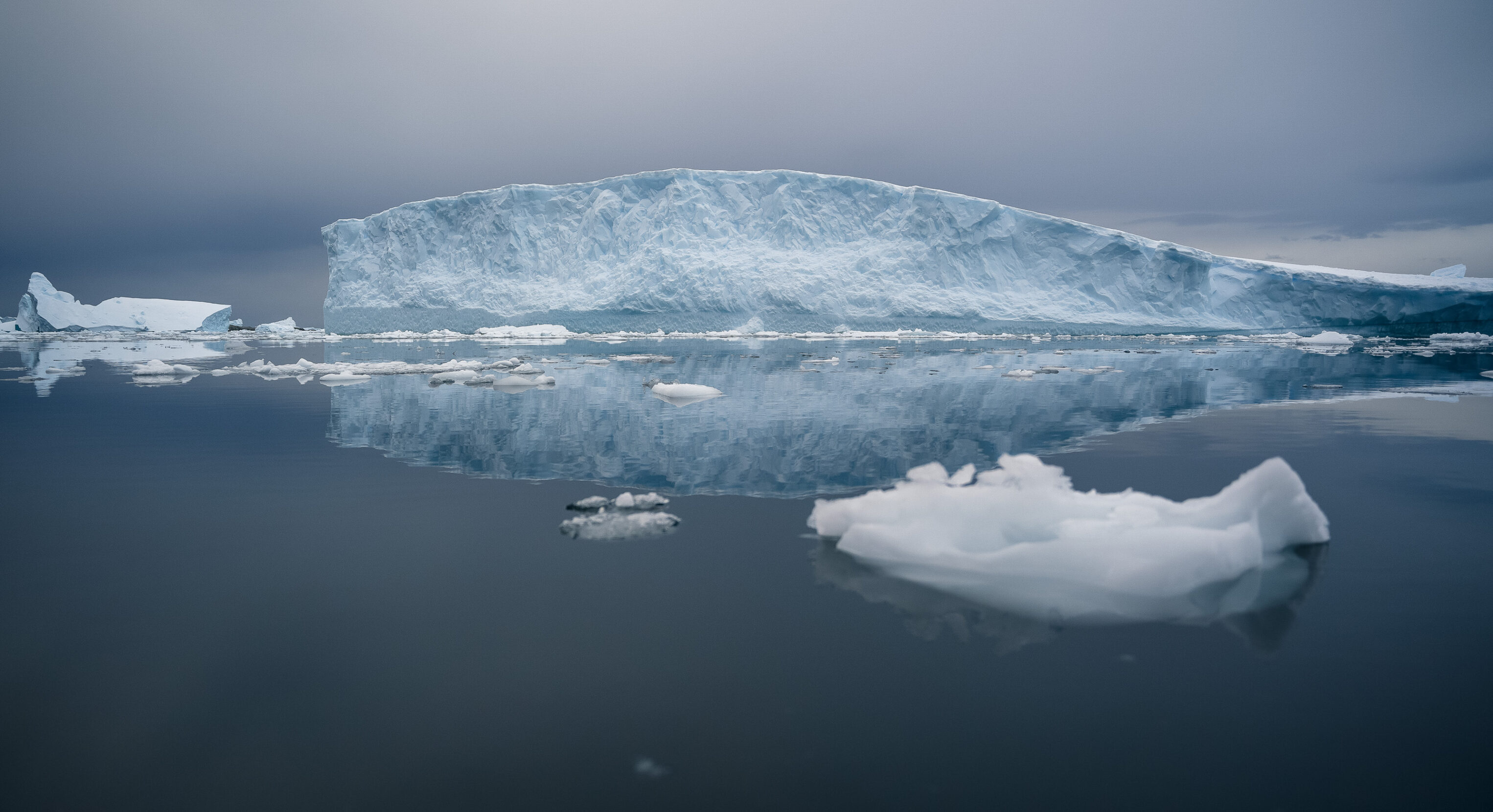
As a child in Thailand, Pier Nirandara was drawn to the poles. As an adult, she found herself in Antarctica exploring the very landscapes she’d once dreamed of. Photo: Pier Nirandara.
~~
While most images from the White Continent portray its glistening topside world, Antarctica’s aquatic environment is arguably even more impressive and evocatively mysterious. I wanted to capture underwater scenes from the frozen continent — of surprising life that demands protection. I wanted to tell stories that stoke awe and wonder, inspiring a need to preserve one of the purest places left on the planet.
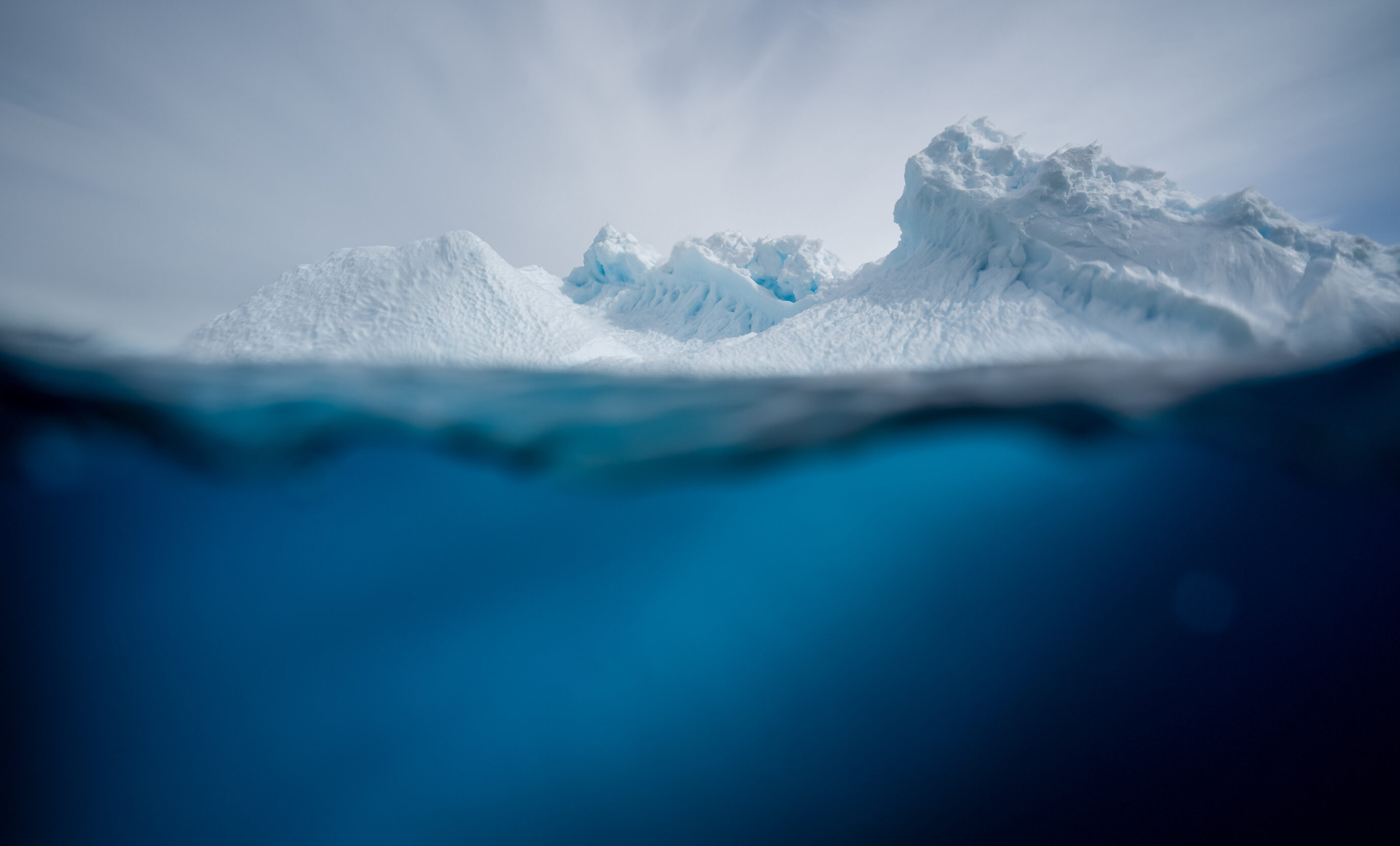
Most photographers capture the Antarctica that lives above ground and water. Pier was drawn to capturing what lies below. Photo: Pier Nirandara.
Dunking my camera housing underwater revealed an entirely new world, one lit by the eerie glow of ice; a painfully sharp blue, begging to be explored. I wanted to pierce the blue veneer and sink beneath the horizon — listen to the ice, that crackling, fizz-pop sound as it calves into birth, bobs, and floats away, someday inevitably melting into death, its blood raising sea levels worldwide.
Somewhere on the Antarctic continent, toward the magnetic South Pole, winds rip through at breakneck speeds and temperatures plummet to heart-numbing conditions. Yet underwater, the world is silent.
~~
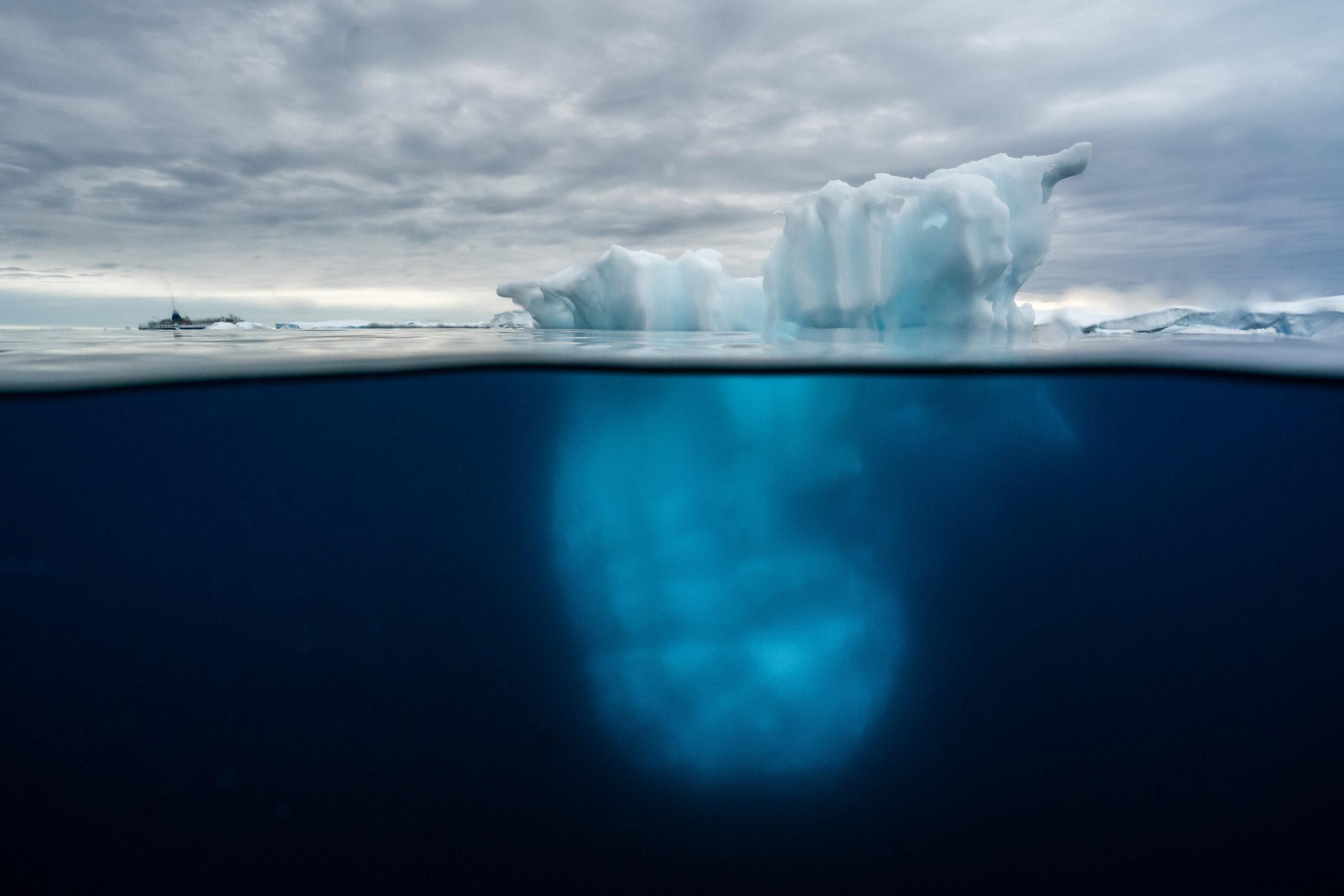
Upwards of 90% of an iceberg lies below the waterline. Here, the typically hidden mass of a berg is visible through the dark water. Photo: Pier Nirandara.
As the night wore on, I shivered beneath half a dozen layers of goose down, wool, and Gore-Tex, questioning my sanity. I was camping in Antarctica, and due to strict regulations, tents were discouraged. All I had was a mountaineering bivouac sack, sleeping pad, liner, and sleeping bag rated to minus 20-degrees — though that was no match for the cold. Daytime temperatures hovered around frosty-but-bearable, but the frigid wind currently gusting across the peninsula had plunged the night to well below freezing. It wasn’t even a proper Antarctic winter yet. Somehow, the penguins in the nearby rookery survived these conditions every night.
My breath condensed on my bivy sack, wet against my face. It’s one thing to romanticize the notion of winter when you’re comfortably warm back home, and quite another when the reality is whipping you in the face.
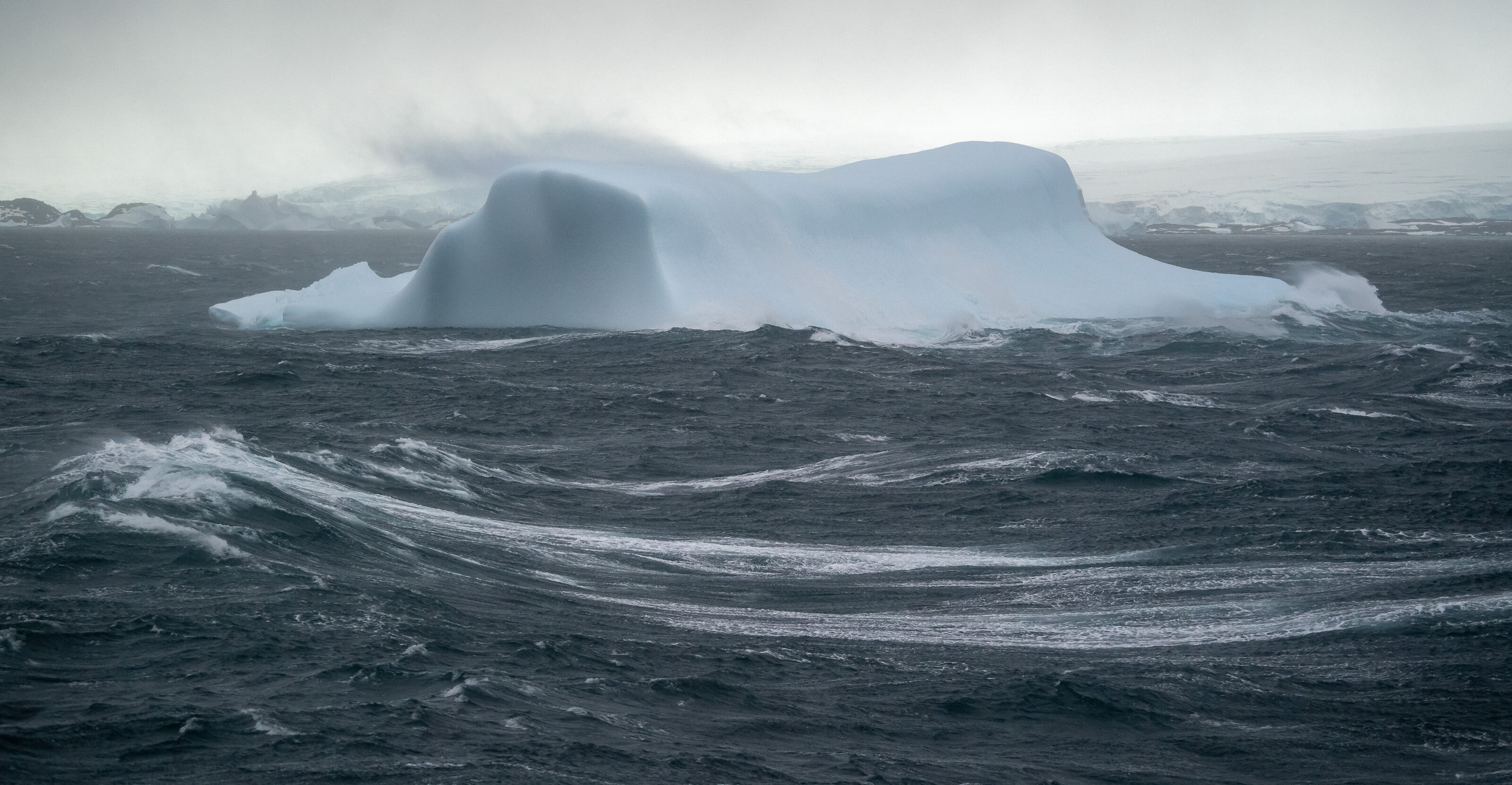
In the rough waters off Antarctica’s coast, wind speeds can reach into the triple digits. On land, the highest recorded wind speed was 199 miles per hour in 1972. Photo: Pier Nirandara.
My mind drifted in and out of anxious sleep, slipping through the nebulous membrane of consciousness. At some point, a pressure in my bladder prodded me awake. I unzipped my bivy sack, tentatively peering out.
The wind had died down. The night was still cold, but the assault had abated. The stench of guano drifted over, along with the squawks of penguins nearby. The midnight sun meant it never got fully dark here, and there was a peach-colored hue washing the horizon, signaling sunrise.
~~
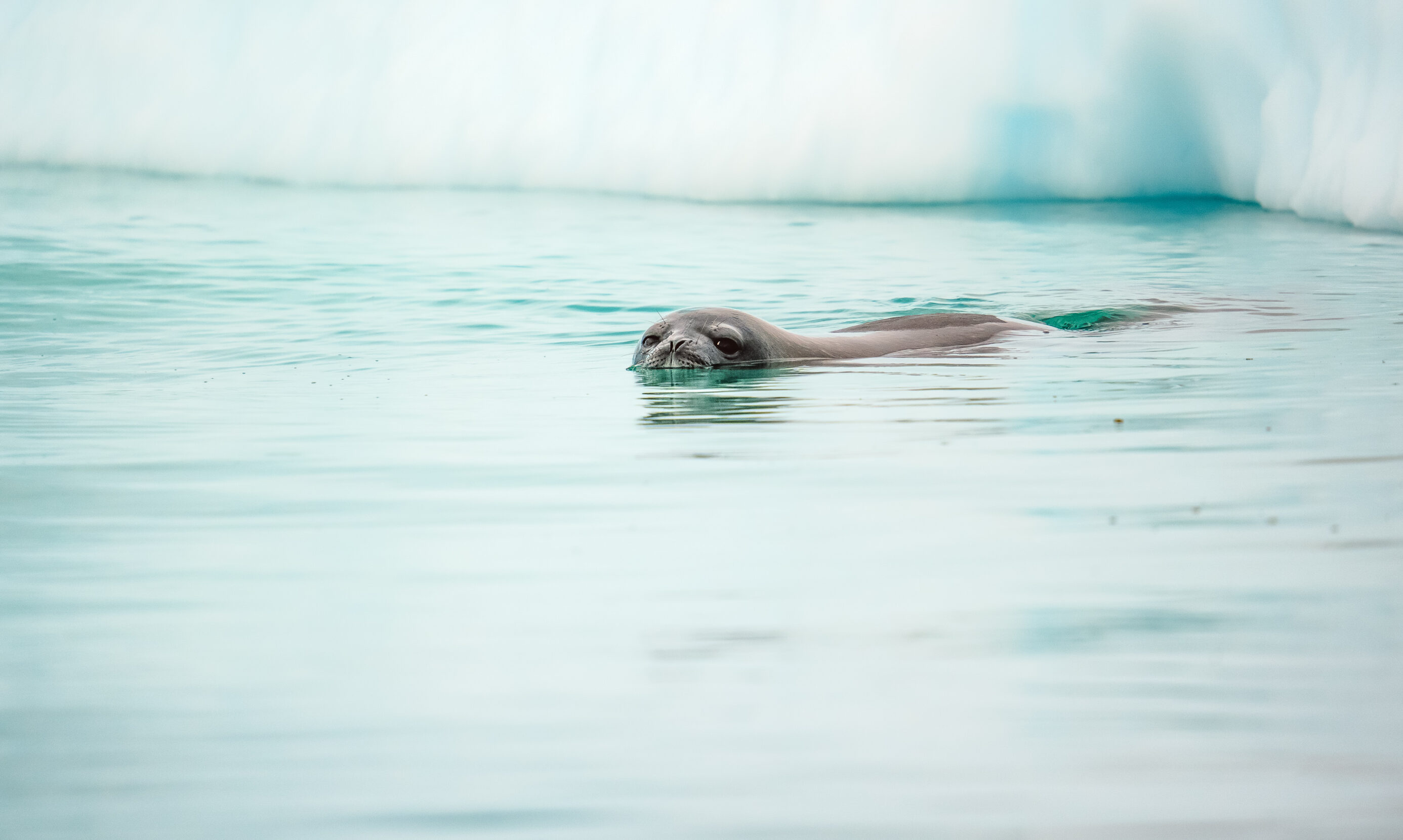
Antarctica is home to diversity of wildlife, including six species of seals and seven species of penguins. Much of the wildlife that makes Antarctica special thrives in its frigid waters. Photo: Pier Nirandara.
The silence of Antarctica was oddly comforting. After rushing through a flurry of countless countries across five continents in the past year, sitting still was a luxury, even if it was in freezing temperatures at the bottom of the earth. On paper, I lived a sunshine-studded life of eternal summers and endless productivity. But the reality of the rat race, of spending the majority of my nights away from home, had burned a searing hole into my psyche. I was drained and burned out, constantly anxious and eternally on the run.
But here, I had room to breathe again.
~~
The night was still. I checked my phone for the time. Unsurprisingly, there was no service, and the cold had drained its battery.
I heaved a breath and shut my eyes, feeling the frigid air on my face.
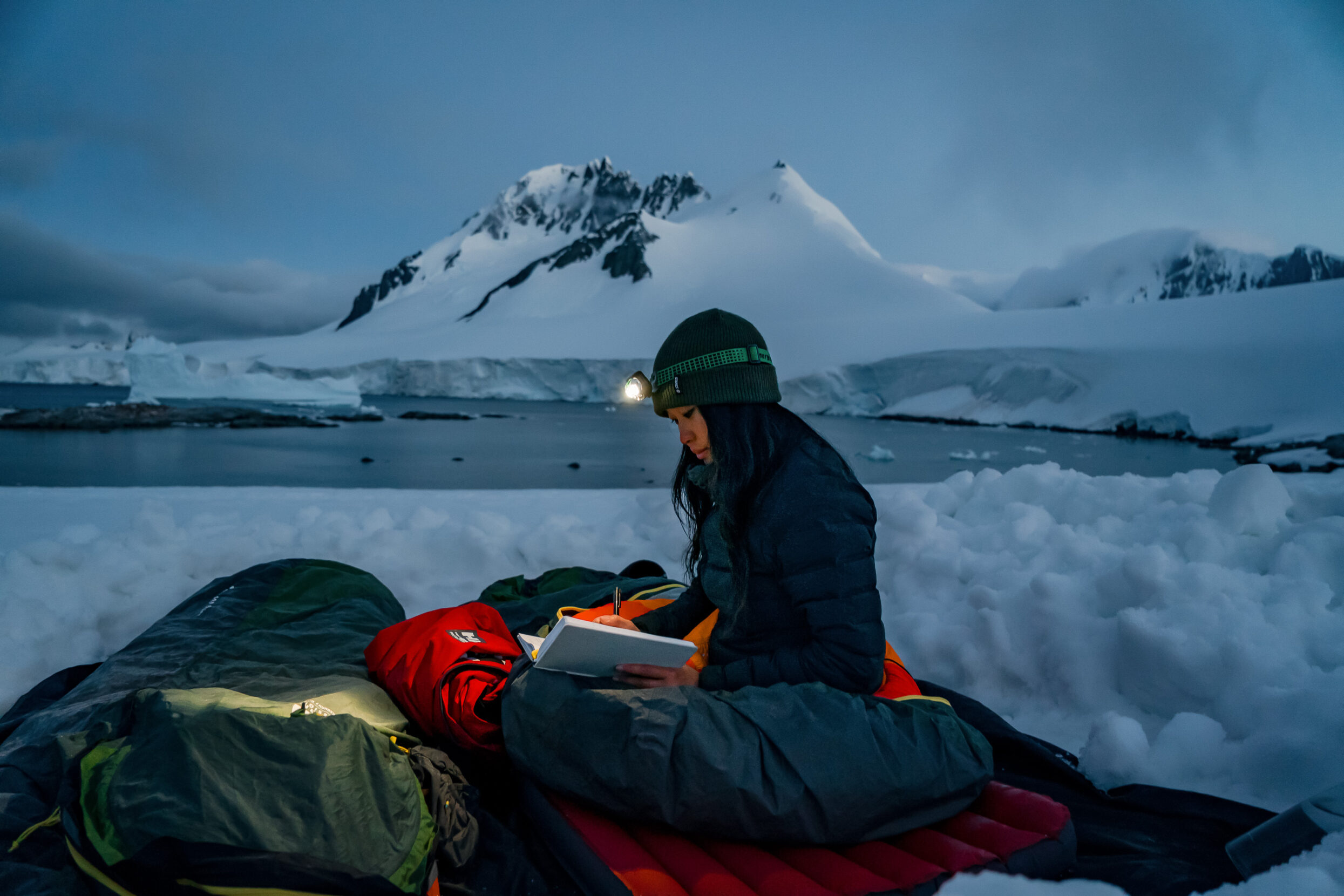
Pier writes by headlamp amidst the icy landscape of Antarctica. Photo courtesy of Pier Nirandara.
Pier Nirandara
Meet bestselling author, award-winning journalist, and acclaimed underwater photographer Pier Nirandara, Hidden Compass’s 2024 Storyteller in Residence.

